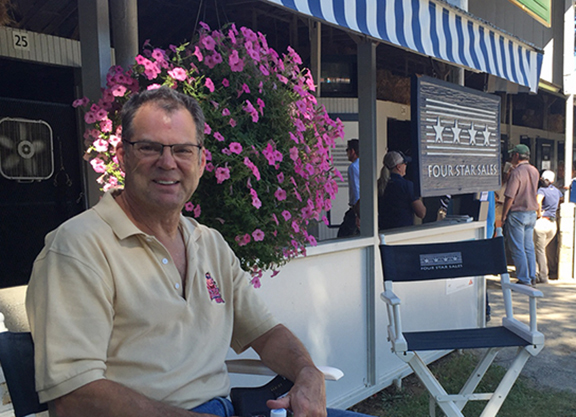By Dan Liebman
Thirty-six years ago, I was dispatched to cover the annual gathering of the Association of Racing Commissioners (now ARCI). I had been covering Thoroughbred racing and breeding full-time for all of about three months.
That night I found myself sitting at dinner with the head of a state testing lab.
“I listened to the session on uniform medication,” I told him. “Seems logical.”
“Never happen,” he said matter-of-factly. “Every state has its own racing commission. Every state has its own testing procedures. No one wants to let go of that.”
As the conversation progressed, I inquired about rumors regarding a “new” performance-enhancing drug said to have appeared on the scene.
“The problem is,” he said, “that by the time we do all the work to develop a test to detect a drug, the cheaters have already moved on to something else.”
So, when 27 people were indicted Monday by the United States District Court, Southern District of New York–including well-known trainers Jason Servis and Jorge Navarro–for administering illegal PEDs to Thoroughbreds, I was particularly struck by one part of the 44-page indictment.
On a phone call intercepted by authorities between Servis and veterinarian Kristian Rhein, the latter tells the trainer that Maximum Security would not test positive for the drug (said to be SGF-1,000). Why? Because, she said, “They don't even have a test for it.”
The indictment alleges the trainers, veterinarians, drug compounders and distributors knowingly conspired to not only administer the drugs but mislabel them to hide their existence from regulators.
In a private conversation with a New York-based trainer many years ago, the subject of illegal drug use came up. This trainer, later inducted into racing's Hall of Fame, made this brash and bold statement: “If there is no test for a drug, then it must be legal.”
Some words you just never forget, and those have haunted me ever since. So, as the lab chemist said, there will always be cheaters. And, as the trainer said, if there is no test for a drug, you are allowed to use it. Which rings true with the indictment, which alleges these trainers were determined to be cheaters, especially in light of the fact there is no test to catch them.
Factor in nefarious characters willing to manufacture and distribute designer drugs and you have the means by which the betting public is bamboozled and the industry has yet another swollen black eye to recover from.
The fact that champion Maximum Security is involved certainly brings more attention to the story, but those who handicap and wager regularly are just as concerned about the thousands of other races where PEDs were administered to horses by these trainers.
It doesn't take a handicapper long to notice when a trainer starts winning more races, particularly with those just claimed and/or moving up in class. This writer has, for years, advocated for stronger penalties for those caught cheating. Why should a jockey found guilty of using a buzzer ever be allowed to ride again? Why should a trainer or veterinarian convicted of participating in a scheme to illegally drug horses and defraud the public ever be allowed to hold a license again?
Furthermore, also as advocated by this writer previously, the only way to curtail such behavior is for the penalties to also involve the horse. How about disqualification from purse monies and banned from racing again? How about being forbidden from becoming a stallion or broodmare?
If a jockey, trainer, or veterinarian thought their actions would not only cost them their livelihood but also cost the horse they train the chance to become a breeding animal, there surely would be less incentive to cheat.
How could any owner not be in favor of such penalties?
Sound too harsh? Not if you want the betting public–without whom there is no sport–to feel assured everything is on the up and up.
Not if you want to know you are part of an industry that rejects cheaters.
Not if you want Thoroughbred racing to survive.
Not a subscriber? Click here to sign up for the daily PDF or alerts.






